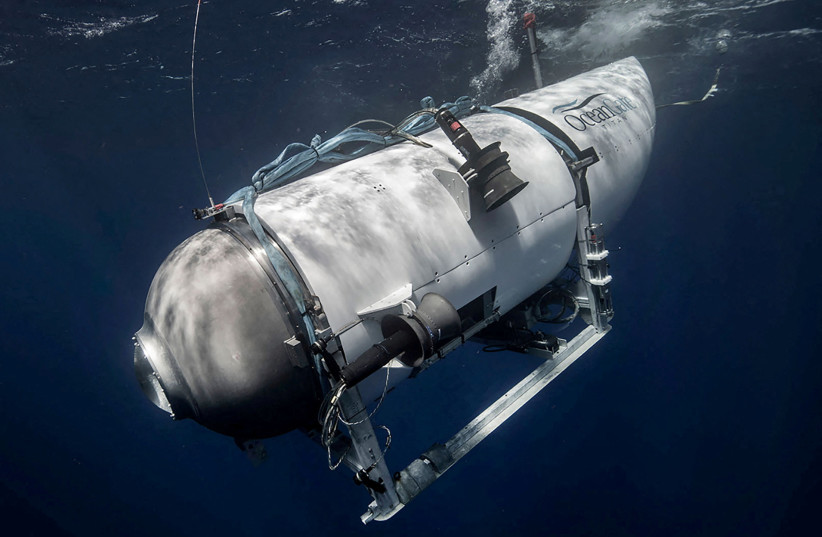Concerns were raised back in 2018 about the safety of a submersible vessel that has been missing since Sunday, when it descended with tourists on a deep ocean journey to view the wreckage of the Titanic.
The pilot and four passengers are aboard and the available oxygen on the vehicle has been forecast to run out Thursday morning.
The Titan submersible is a 22-foot (6.7-meter)-long vessel operated by Everett, Washington-based OceanGate Expeditions. It first made a voyage dive to 4,000 meters (13,100 feet) in December of 2018, according to the company's website, and first dove to the site of the Titanic - which lies on the seabed at a depth of about 3,800 meters - in 2021. It planned to make 18 such dives this year.
But some experts had worried about its safety, with a former employee and members of a trade group both expressing concerns about the design of the Titan vessel during its development.
On Jan. 18, 2018, OceanGate employee David Lochridge forwarded to the company's leaders an engineering report he had authored that was critical of OceanGate's research and development process for the Titan, according to lawsuits Lochridge and OceanGate filed against one another that year. In particular, Lochridge was concerned about the design of the hull and its ability to withstand the intense pressures of deep waters.

The company called a meeting the next day to discuss Lochridge's concerns, according to the lawsuits. At the conclusion of the meeting, Lochridge stated he could not accept OceanGate's design decisions and would not authorize any crewed voyage without further testing. He was then fired.
OceanGate filed a lawsuit against Lochridge in June and July of 2018 alleging he had discussed confidential information with at least two other people. Lochridge countersued in August 2018, denying that and claiming that OceanGate's lawsuit was an effort to discourage "whistleblowers from coming forth with quality control issues and safety concerns that threaten the safety of innocent passengers."
OceanGate did not respond to requests for comment. Lochridge, through his lawyer, said he had no comment.
Letters expressing concerns over operation safety
Will Kohnen, the chairman of the Marine Technology Society's (MTS) committee on manned submersibles, addressed a letter dated March 27, 2018, to OceanGate founder and CEO Stockton Rush, who is piloting the missing vehicle. In the letter, Kohnen expressed what he said were widespread concerns about the Titan sub.
The problem, Kohnen said in a Wednesday interview with Reuters, was not any single design flaw. The issue was that OceanGate did not go through the industry's recognized certification process for the sub's design, fabrication and testing.
"Our apprehension is that the current experimental approach adopted by OceanGate could result in negative outcomes (from minor to catastrophic) that would have serious consequences for everyone in the industry," read Kohnen's letter.
Kohnen asked the MTS board in 2018 to officially send the letter on behalf of the entire society to Stockton. The board would not do that, saying it was not within their scope as an organization, Kohnen said.
The letter came about, Kohnen said, after submarine experts attending an annual symposium expressed concerns that OceanGate would not allow certification of Titan by DNV GL, an independent quality assurance and risk management company that sets standards for the design safety of underwater vehicles.
DNV GL states on its website that it has over 40 years of experience in the field of underwater vehicles. It certifies the design and safety of such vehicles.
But it never certified Titan, according to MTS and Lochridge's lawsuit. DNV GL did not reply to requests for comment.
The letter said experts believed OceanGate should at least create a prototype testing program for the Titan that would be reviewed by DNV GL, stating that "it is our unanimous view that this validation process by a third-party is a critical component in the safeguards that protect all submersible occupants."
Stockton was sent a draft of the letter and discussed its contents in a 2018 phone call with Kohnen, in which the men "agreed to disagree" about the safety concerns raised, Kohnen said.
